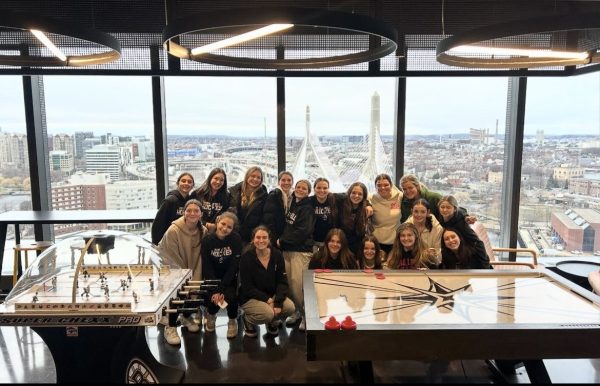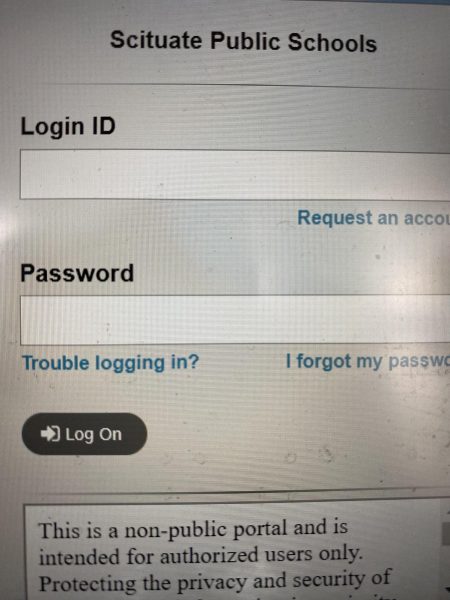Social Media Controversies Raise Questions of SHS Digital Footprint
January 16, 2019
On December 6th, 2018, merely days after comedian Kevin Hart was announced as the host for the 2019 Academy Awards, it was swiftly announced that he would be stepping down. Why? A problem that has thrust more and more celebrities out of the spotlight: old tweets.
In several tweets ranging from 2009, Hart uses anti-LGBTQ language repeatedly, threatening to break a dollhouse over his son’s head if he’s seen playing with it and calling a user’s profile picture “a gay billboard for AIDS.” After ignoring the Academy’s ultimatum to apologize or step down, the comedian resigned from the job, ironically offering the apology to the LGBTQ community he would have needed to keep the job.
Regardless of the specifics, a similar narrative has been constructed of social media ghosts coming back to haunt celebrities, athletes, and politicians on the cusp of important achievements–from Heisman winner Kyler Murray, to Hart, to Guardians of the Galaxy director James Gunn. However, the question arises to many of today’s teens: if the older generation is getting in trouble for tweets from their adult years, what will happen when they rise into positions of importance and old social media is pulled up from high school?
School Resource Officer Arseneau has seen an increasing lack of responsibility for students’ digital footprint: “I think social media can be used for good, but also for bad… Nothing’s ever gone. If you delete something or with Snapchat, and how it disappears, nothing ever disappears.”
Arseneau added, “If I’m investigating someone, I can always get that information. It’s always there, it’s in the cloud.” This is a fact that is often pointed out to teenagers by parents, warning that colleges see everything, that it can determine whether you get the job or not, but hearing it from a police officer points out the dangerous pitfalls of social media.
“Bullying, for example, used to be done face-to-face, but now it’s done through social media. When it was face-to-face, it was just your story and witnesses, but now that it’s through social media and through cell phones, it’s just always there, like preserved evidence,” explained Arseneau.
The idea of each and every one of this new generation’s Snapchats, Instagrams, and tweets “preserved” like Officer Arseneau points out–on the digital cloud–bodes chillingly for our adult years. What will happen when a Generation Z president is in office, and old Snapchats are resurfaced? Or a Fortune 500 CEO? Are kids even thinking this far in advance? We talked to kids from one SHS upperclassmen homeroom and one SHS underclassmen room to try and find any differences in social media wariness.
Both homerooms expressed an equal fear of their high school social media usage being brought up later in life. Freshman Sam Benning said, “It’s kind of scary, thinking about how your actions now can affect how you are later on.” The upperclassmen second this; when asked whether someone from Generation Z’s social media usage should be held against them while getting a job, the answer was a resounding “No!” Junior Maddy Porter argues, “Why should something that you did so long ago define your capabilities for that job?… Everybody does stupid things.” However, they were more thoughtful of circumstances, clarifying that “some are more severe than others,” according to junior Grace Ryan.
The two homerooms differed in their awareness of what they post themselves. Out of the three freshmen and three juniors interviewed, none of the freshmen claimed to be thinking of the future, whether it be college or jobs, when posting. On the other hand, the juniors were generally more concerned about what they choose to put out there, with both Ryan and Porter agreeing with the sentiment that they are “aware with what we put out there.”
Although the difference in age is just two years, the difference in social media reasoning is vast. Merely two decades ago, sophomoric teenage humor was certainly not a cause for concern, much less so just cause to lose a job, but the digital cloud with which social media information is stored has changed the game permanently.
Freshman JJ Adams worries, “Even if you think it can be deleted, it probably can’t be. There are so many people whose job it is to just look through the Internet and find things about you.” With the possibilities, along with the negative impact of social media starting to unfold, one can only wonder what the true extent of social media usage is on Generation Z.









